Artificial Leaves Key To Lowering Hydrogen Fuel Production Costs
For all of the incentives thrown in front of the upcoming Toyota Mirai, the automaker believes fueling the FCV will remain an expensive proposition in the near-term. That is, unless new hydrogen production technologies do for fuel cells what petroleum technology did the for the ICE.
Report: Hydrogen Gaining Ground On Electricity Within Four Years
Though EVs currently hold the high ground in the zero-emission vehicle market, a new report claims those vehicles will be giving ground to hydrogen in the near future.
Tesla-Toyota Relationship On Hold After Rocky RAV4 EV Program
Just four years ago, Tesla and Toyota entered into a relationship where the former would supply battery packs for the latter’s RAV4 EV. In turn, Toyota invested $50 million in Tesla, and sold the NUMMI facility — which Toyota once shared with General Motors — for $42 million. Things have changed, in the sage words of Bob Dylan.
Linde North America Receives $4.3M To Build Two NoCal Hydrogen Stations
Silicon Valley startup bros looking to trade in their Teslas and Prii for FCEVs and Mirais will soon have two fueling options available from gas giant Linde North America.
Japanese Officials Pushing Hard With Subsidies For New Hydrogen Mirai
The 2015 Toyota Mirai may be breaking new ground in the fuel-cell vehicle game beyond merely existing, as subsidies galore are being thrown at potential consumers on all sides, including the possibility of owning the FCV for free.
Japanese Government To Push FCVs Via $20k Subsidy
With Toyota ready to make big moves with its 2015 FCV, the Japanese government is ready with their own big move: $20,000 USD in incentives.
SAE J2601, J2799 Standardize Hydrogen Fueling, Increase FCV Range
It took 13 years, but SAE International has introduced a new standard for hydrogen fueling stations: SAE J2601.
Daimler To Enter FCV Market In 2017
While Japanese and Korean automakers like Toyota and Hyundai are jumping into the hydrogen game, Daimler plans to begin its own journey in 2017.
Hyundai, Tesla In Spat Over Funding Of Supercharger Network
Hyundai’s head of U.S. product planning Michael O’Brien may have written a check his mouth can’t cash when he claimed Tesla’s Supercharger network was paid with taxpayer dollars.
Kato: EVs Need Nobel Prize-Quality Battery Technology
Toyota’s global R&D head Mitsuhisa Kato has little regard for the current crop of EVs, proclaiming the technology to make them viable in his eyes has yet to be invented.
Hydrogen Digest: July 1, 2014
In today’s hydrogen digest: Toyota asks the National Highway Traffic Safety Administration for a two-year exemption on its FCV; the automaker banks on subsidies to help the FCV leave the showrooms at home and abroad; and ammonia may be the secret to hydrogen’s success as a fuel.
Question Of The Day: What Does Japan Know About Fuel Cells That We Don't?
A new report from Reuters highlight’s the Japanese auto industry’s increasing focus on hydrogen fuel cells, a technology that has long been written off as dead by many industry observers and battery electric vehicle advocates.
2015 Toyota FCV Unveiled, Priced From $68,688 In Japan
Toyota’s first mass production fuel cell vehicle was unveiled today in Tokyo, prices from just under $70,000.
Toyota's First FCVs To Arrive In Showrooms Christmas 2014
Toyota is wasting no time in moving forward toward a hydrogen future, announcing it will build its FCV Concept-based fuel-cell sedan this December, with sales coming just in time for the big-red-bow-tie Christmas 2014 sales extravaganza.
Hyundai Gathers Tucson ZEV Credits For Future Internal, External Swaps
While the first hydrogen-powered Tucson FCVs left the docks in California in the last week of May, Hyundai knows the vehicles aren’t meant to add to the company’s bottom line, but are meant to garner credits for future use.
Coalition Of Eight Unveils Plan To Encourage ZEV Production
A coalition of eight states have adopted a plan to encourage automakers to help meet the target of 3.3 million ZEVs taking to the road as required by the Clean Air Act by 2025.
California Receives Majority Of $7M US Energy Department Hydrogen Funding
A new gold rush in California is coming to the fore as private and public investments push hydrogen fuel cell technology forward, and the U.S. Department of Energy is the latest to enter the arena.
Tesla: Toyota Desires Battery R&D Partnership, Panasonic Wants Gigafactory For Itself
Though Toyota will soon end its battery program with Tesla for its RAV4 EV crossovers, the automaker aims to remain R&D partners on battery technology. Meanwhile, Panasonic wants to be the only producer involved in Tesla’s Gigafactory production.
Senate Committee Approves Move To Bar Hybrids From Further Solo HOV Access
Hybrid owners may soon need a co-pilot and a couple of backseat drivers to use HOV lanes, as the U.S. Senate Environment and Public Works Committee approved a six-year highway spending bill w ith an amendment that would redefine for states what vehicles can and cannot use such lanes for solo driving.
Toyota Turns Away From Batteries, Toward Fuel Cells
After 20 years of pursuing a battery-powered future, Toyota has decided to take a different course powered by hydrogen.
Fewer Than 4,000 Green Calif. HOV Stickers Remain
For potential California PHEV owners, time may soon run out to obtain the Green Clean Air Vehicle Sticker issued by the California Environmental Protection Agency for HOV lane use, as only 3,770 of the 40,000 stickers remain available.
Dr. Z Expects a Decade of Disappointment For Fuel Cell Technology
At a round-table discussion with reporters during last week’s Detroit Auto Show, Daimler CEO Dieter Zetsche proclaimed that any consumer wanting to be green with fuel cells had better be prepared for a decade of disappointment with the technology.
Toyota Will Put Hydrogen Fuel Cell Vehicle On Sale Next Year
It doesn’t have a name yet, and the prototype that Toyota unveiled at the 2014 Consumer Electronics Show was covered in camo, but the Japanese automaker promises that they will be selling a hydrogen fuel cell vehicle in the United States next year. The company is claiming it will have a range of 300 miles and will refuel in less than five minutes. The Corolla sized sedan has been tested in North America’s hottest and coldest locations and Toyota says that the emissions free car will have an electric motor rated at greater than 100 kW (>130 hp) and be able to accelerate from zero to sixty miles an hour in about 10 seconds.
“We aren’t trying to re-invent the wheel; just everything necessary to make them turn,” said Bob Carter, Toyota’s senior VP in charge of U.S. auto operations.
Toyota Aiming For Modest Annual Sales Of Fuel Cell Cars
Toyota believes fuel cells are the future, becoming a competitive technology up against other zero-emission compliance tech by 2030 at the latest. In fact, the automaker plans to hedge their bets in the near future by setting an annual sales goal of 5,000 to 10,000 fuel-cell powered machines beginning in 2015.
Los Angeles 2013: Honda FCEV Concept
Honda’s successor to the FCX Clarity isn’t set to arrive on our shores until 2015, but those in LA bore witness to what its successor would look like through the eyes of the FCEV Concept.
Never Say Never: Hydrogen, Diesel En Vogue Again
Remember this piece from the Honda Summer 2008 Hydrogen Collection? It was supposed to point the way to future of green fuel technology before the Tesla brought plug-in sex appeal down the ramp with their Roadster and, later on, the S, as well as the trend of compliance EVs from Chevrolet, Volkswagen and Kia.
But with sales of plug-in hybrids advancing far slower than originally expected regulators are taking another look at alternative ZEV powertrains.
Hyundai Says Fuel Cells Will Be Cheaper Than Batteries, Will Debut Hydrogen Fuel Cell CUV Next Year
Fuel cells are back in the news, with Toyota revealing the FCV concept and Tesla CEO Elon Musk comparing fuel cells to bovine excrement. Now Hyundai says that they are preparing an electrically driven CUV powered by a fuel cell for a North American debut next year. Just before he was apparently forced to resign over quality control issues, Kwon Moon-sik, Hyundai Motor Group’s president of r&d, told Automotive News that the Korean automaker sees fuel cells and not batteries as the future for EVs. He said that money is the reason, seeing greater opportunities to reduce the cost of hydrogen fuel cells than batteries.
“There is no problem with the technology — only with the cost and profitability,” Kwon said of battery EVs. “We cannot make a profit with them.”
Elon Musk: "A Fuel Cell Is So…"
Speaking to Tesla enthusiasts at a Tesla service center in Germany, Tesla Motors CEO Elon Musk insisted that batteries made more sense for powering electric vehicles than hydrogen fuel cells, calling them “bullshit” and saying that hydrogen isn’t safe to use as an automotive fuel.
Honda, GM Team Up For Fuel Cell Technology As Alliance Trend Continues
When it comes to fuel cell technology, everyone seems desperate to hop into bed with everyone else. The past 12 months has been a whole number of alliances; the start of 2013 saw an announcement between Toyota and BMW to partner on hydrogen technology, while Daimler, Ford and Nissan also banded together on their own fuel cell project. Now we can add Honda and GM to that list.
Toyota Will Launch 2015 Fuel Cell Car, Volkswagen Won't
We’ve been saying it for years that Toyota, along with several other automakers, will launch a hydrogen fuel cell car in 2015. Two years ago, you heard it from Toyota’s Chief Engineer Satoishi Ogiso. A month ago, Toyota’s America-chief Jim Lentz promised that “the first fuel cell sedan is coming to the U.S. in 2015.” Now, Bloomberg says that “at the Tokyo Motor Show in November, Toyota plans to show a hydrogen-powered sedan that would be sold as a 2015 model.”
Lentz: Hydrogen Sedans By 2015 From A Spread-Betting Toyota
AutomakerS around the world seem to have colluded to turn 2015 into the Hydrogen year. Yesterday in Nagoya (a trip into which TTAC invested 21,160 yen, and the price of a bento box, no freebie jaunts in Japan) , Toyota’s NA CEO Jim Lentz confirmed that the Hydrogen Year is still on the calendar.
Reshuffling The Stacks: Volkswagen Bets On Hybrids While Toyota Thinks Hydrogen Is A Winner
Volkswagen has been tinkering with hydrogen for longer than I can remember. Yesterday, CEO Martin Winterkorn said it was all for naught. Hydrogen fuel cells are unlikely to become a cost-effective way to power cars in the near future, Winterkorn told Automotive News at Volkswagen’s press conference in Wolfsburg. He said it’s not Volkswagen’s fault:
Volkswagen, Ballard Power Sign Fuel Cell Deal, Worth Up To $100 Million
Canadian fuel cell firm Ballard Power inked a deal with Volkswagen that could be worth as much as $100-million and last up to 6 years.
Reuters Kills The Electric Car. Again
Consumers lose interest. Even reporters do.!
A few days ago, we wrote that “EVs run out of juice.” When we did that, we referred to collapsing sales in January only. Now Reuters says: “Are electric cars running out of juice again?” Reuters means it in a bigger way. Like forever.
Ford, Daimler, Renault-Nissan Alliance Sign Huge Hydrogen Pact
There are people, and some of them comment on TTAC, who are convinced that a hydrogen-powered car is an insanity that will never work, but other people who work at the world’s largest carmakers beg to differ. Today, Ford, Daimler, and the Renault-Nissan Alliance signed a tripartite pact for the joint development of a fuel cell system that promises to be implemented faster, and at lower cost, both to automakers and customers.
Japanese And Korean Carmakers Jointly Promote Fuel Cell Vehicles
Pretty much most of the world’s large automakers plan a commercial launch of fuel cell vehicles in 2015, Hyundai even earlier. One of the hot spots could be Scandinavia. At the end of a month-long hydrogen-powered tour through Europe, Toyota, Nissan, Honda and Hyundai signed an agreement to jointly promote fuel cell vehicles in Norway, Sweden, Iceland and Denmark.
European Hydrogen Fusion Between Daimler, Honda, Hyundai, Toyota
Call it synchronicity or call it conspiracy: 2015 is drawing closer, the year when several large global automakers will begin full-scale launches of hydrogen-powered automobiles. Developing new powertrains being costly with unassured payback, automakers form alliances to share the cost. And alliance of Daimler, Honda, Hyundai and Toyota to jointly promote hydrogen use would be surprising, they usually are otherwise engaged. However, the four join hands, forces and cars for a grand hydrogen tour through Europe.
The End Run Of The Fuel Cell Race
The excitement about battery electric vehicles seems to die down amidst disappointing uptake. Range, weight and cost are in the way. At the same time, dormant interest in fuel cell vehicles is being rekindled . A month ago, we had a new look at the technology from the perspective of the Toyota/BMW linkup. Today, The Nikkei [sub] takes a broader view and says that carmakers are in the final lap of the fuel cell race. Let’s have a look at the contestants and where they stand.
Toyota And BMW Plan To Take The Lead In Commercializing Fuel Cell Cars. Let's Revisit
The intensified alliance between Toyota and BMW shines a new light on a technology that has been discussed for decades, but that never quite made it: Hydrogen fuel cells. BMW will get access to Toyota’s fuel cell technologies. This most likely spells the end of the fuel cell cooperation between BMW and GM. Let’s take another look.
CARB Wants 15.4 Percent Of New Cars To Be Plug-In, Hydrogen By 2025
CARB has mandated that 15.4 percent of new vehicles sold in California by 2025 must be plug-in, electric or fuel cell powered. The new mandate was supported by major OEMs and could mean as many as 1.4 million zero-emissions vehicles (as well as plug-in cars) on California roads by 2025.
Green Hopes Pinned On The Young: Generation Y Has The Hots For Hybrids, Survey Says
The car industry has high hopes for the young. Automakers have invested and are investing billions into hybrid and electric vehicle, so far with lackluster success. In the U.S., the take rate of hybrid cars is actually coming down from a 2.78 percent peaklet in 2009. The 0.14 percent market share of EVs is too small to move the plotter’s needle. To recoup the investment, new tech vehicles have to be sold in more meaningful numbers. It is the generation Y that is supposed to set the needle in motion. A study of Deloitte Touche Tohmatsu promises that Generation Y will make a humongous difference.
Generation Y could be the “generation that leads us away from traditional gasoline-powered vehicles,” Craig Giffi, who is in charge of Deloitte’s annual survey of Gen Y auto consumers, told the L.A. Times. The paper summarizes:
BMW And GM Cooperate On Hydrogen Car
At the Tokyo Motor Show, the announcement that Toyota and BMW are in cahoots over batteries, diesel engines and possibly more was the talk of the show. Back in Bavaria, BMW displays a promiscuous bent. BMW will cooperate with GM, yes GM, on fuel cells. This at least if the German magazine Wirtschaftswoche is correctly informed.
Sources told Wirtschaftswoche that a cooperation between BMW and GM is as good as done.
Toyota Targets 2015 Fuel Cell Sales… At A Six-Figure Price Point
Dan Akerson Talks Down Hydrogen, Reveals Natural Gas Plans In Extended Interview
In an extended interview with Fareed Zakaria this weekend, GM CEO Dan Akerson repudiated a lot of GM’s previous optimism about hydrogen fuel cell cars, saying
We’re looking at hydrogen fuel cells, which have no carbon emissions, zero. They’re very expensive now, but we’ve, just in the last two years, reduced the price of that technology by $100,000. The car is still too expensive and probably won’t be practical until the 2020-plus period, I don’t know. And then there’s the issue of infrastructure
The DetN points out that GM had previously said that it would have anywhere from 1,000 to “hundreds of thousands” of fuel cell cars on the road by 2010, and most recently said (in 2009) that the technology would be “commercialized” by 2015 and “cost-competitive” by 2020. So, if hydrogen is moving to the back burner, what’s moving up? Akerson revealed that
soon we’ll be introducing “bi-fuel” engines which can burn both compressed natural gas and liquid gasoline.
We’ve seen GM take early steps towards bringing a natural gas-powered car to the road, but this is the first sign from a top executive that a dual-fuel car is a certainty in GM’s near future. By talking down hugely expensive hydrogen cars and talking up cheap natural gas powerplants, Akerson sends a strong message that GM’s green car efforts are moving in a more pragmatic direction. Hit the jump for part two of the interview, in which Akerson talks gas tax and green cars.
GM Plans Opel Flagship As "Technological Spearhead" (Or XTS Rebadge?)
With Opel planning to pull itself into the black within the year, the brand’s thoughts are turning from survival to “luxuries” like a flagship model planned for around 20k units starting in the 2016-2017 timeframe. Codenamed “TOL” for “Top Of Line,” the sedan will be designed to highlight one of GM’s many alt-drivetrain technologies, but according to Automotive News [sub], nobody yet seems sure which. Opel labor rep and recent champion of the brand’s forthcoming products Klaus Franz explains:
Already with the our Ampera electric vehicle, we have shown what we are able to do and enjoy an advantage of two to three years compared to the competition
But with the TOL is planned for 2016, Opel may have to dig deep to jump out ahead of the market, which is why a fuel cell-powered electric drivetrain is being considered (also, after decades of FCV research, GM has to build a production model someday). And if the eventual product has a truly ahead-of-its-time drivetrain, and looks as good as last year’s Flextreme Concept (above), this flagship could be an exclamation point on Opel’s turnaround. Unfortunately, neither of these things are a given…
Daimler Plans Volume Production Of Hydrogen Cars In 2014
The ominous Hydrogen Year 2015 is popping up again. Last year, Byung Ki Ahn, general manager of Hyundai-Kia’s Fuel Cell Group said: “There are already agreements between car makers such as ourselves and legislators in Europe, North America and Japan to build up to the mass production of fuel cell cars by 2015.” Going through the many files produced in Brussels, you find that in Europe “car manufacturers are getting ready for the commercial production of hydrogen vehicles by 2015.”
Toyota Inaugurates Gas Station
A bevy of industry figures and politicos congregated yesterday in Torrance, CA, to celebrate the grand opening of a new gas station. But it wasn’t just any new gas station …
EVs In, Diesel and Hydrogen Out In Obama Budget
View more presentations from US Department of Energy.
The EPA’s National Clean Diesel Campaign and the Department of Energy’s Hydrogen Energy Program have both been defunded in President Obama’s proposed 2012 budget, as the White House focuses on the much– debated goal of putting one million electric cars on the road by 2015. Bloomberg reports The NCDC budget was cut from $80m in 2010 to zero, even though Obama only just reauthorized $100m per year of grants through the program ten days ago. According to Senator Tom Carper, one of the sponsors of that re-authorization, the program
leverages federal dollars so efficiently that for every $1 invested, we get over $13 in health and economic benefits in return
Oh well. Meanwhile, fans of the oil-burners imported by the German brands can relax: the NCDC focused on improving diesel emissions from freight, ports and fleets rather than subsidizing Euro-phile sports sedans. Besides, diesel isn’t the only loser in the rush to push plug-in cars to market: hydrogen is also losing out.
Motor Trend Tells Its Side Of The Mercedes F-Cell Fiasco Story
Range Anxiety Strikes Mercedes Fuel-Cell Convoy, TTAC Alum
Hydrogen Fuel Cell vehicles (FCVs) are enjoying something of a comeback lately, as everyone from Hyundai and Honda to GM and Daimler are talking about forthcoming production versions of test-fleet FCVs. And with EVs poised to both dominate the short-term green-car game and inevitably disappoint consumers, it’s no surprise that the perennial “fuel of the future” is enjoying a fresh look from automakers. But if high cost and range anxiety are the flies in the EV ointment, the FCV-boosters are finding their hydrogen cars tend to suffer from the same problems. Daimler says
By 2015, we think a fuel cell car will not cost more than a four-cylinder diesel hybrid that meets the Euro 6 emissions standard.
but that by no means guarantees its Mercedes FCV will be truly “affordable” by any reasonable standard, as diesel-electrics are considered one of the most expensive applications of internal combustion power. And then there’s the whole range issue. Yes, FCVs refuel faster than EVs, but even the most ambitious of Hydrogen-boosters, Daimler, are only pushing vehicles with a 250-mile range. Which is why we puzzled a bit over The Globe And Mail‘s assesment that
Three Mercedes-Benz B-Class F-CELL models will make [a 125-day] global trek, which will seek to highlight the real-world benefits of fuel cells versus EVs – mainly their much further range
Flipping over to AutoMotorundSport, we find that the irony which completely escaped the G&M is threatening to overwhelm Daimler’s entire demonstration. And, as is only natural when things like this occur, there’s a bizarre TTAC connection…
Hyundai Hands Out Free Hydrogen Cars
More little steps on the hydrogen fuel cell front, part of the walk-up to the big 2015 launch: Hyundai signed a memorandum of understanding with Norway, Sweden, Denmark and Iceland to supply hydrogen fuel cell electric vehicles to public organizations in a pilot program, The Nikkei [sub] reports.
On Your Next Trip To Tokyo, Take the Fuel Cell Car
Yesterday, I changed my base of operations to Tokyo for a month to escape the Chinese New Year festivities (i.e. one month of WW III worthy fireworks, combined with closed shops and restaurants.) If I would have stuck it out a few days longer, I could have enjoyed a ride in a fuel cell vehicle.
Cars Won't Run Out Of Gas. They'll Just Use Different Gas
EVs are the darling of the media. In Europe, the Leaf is the COTY. In the U.S. and Canada, the range extended Volt is the COTY. Then why are most big European manufacturers (except Renault) and most Japanese manufacturers (except Nissan) dragging their heels when it comes to wholesale electrification of their fleets? Maybe because they are working on wholesale adoption of hydrogen. As previously reported, there are agreements between automakers and governments in Europe, North America, Korea and Japan to prepare for the mass introduction of fuel cell cars by 2015. Japan is ahead of the game.
World's Auto Execs Don't Buy Their Electric Cars Hype
The majority of car makers the world over think that for the next five years, electric cars will remain too expensive to stand a chance in the mass market. Their saving grace must be government subsidies. Without government money, EVs are priced out of the market.
2015: Start Of The Hydrogen Age?
We are picking up more and more signs of an impending revival of assumed dead fuel cell technology.
Here is another one: The Nikkei [sub] says that the Japanese government is supporting an initiative to draw a hydrogen from a surprising source: Oil refining. And they need to be ready by 2015.
BMW Announces Environmentally Friendly Drivetrain Of The Future
Major players in the industry think that EVs are a stopgap measure at best. Volkswagen declared that nobody wants EVs, except governments. In Japan, Toyota and Honda are talking louder and louder about hydrogen. There must be something better than plugins: A revolutionary technology that powers the car from a renewable energy source in an environmentally responsible fashion.
BMW just found what the world needs.
LA Auto Show: Mercedes B-Class F-Cell Hydrogen Car
Daimler's Next Hybrids: Made By Toyota
If you want to offer hybrid cars, but don’t have the money / time / run rate / wherewithal to do it yourself, who’re gonna call? Toyota. But who would have imagined that haughty Daimler picked up the phone, dialed 0081, and said: “Let’s talk?” Daimler considers joining the growing list of automakers that source their hybrid systems from Toyota City. Toyota is in talks to provide technology and core components for hybrid vehicles to Daimler, after having been approached by the Germans, says The Nikkei [sub].
Hydrogen Refueling Station Explodes In Rochester, NY
Hyundai-Kia Jump On The Fuel Cell Bandwagon
With Honda and Toyota suddenly taking hydrogen fuel cells seriously, Hyundai-Kia is jumping on the bandwagon. Byung Ki Ahn, general manager of Hyundai-Kia’s Fuel Cell Group tells Autocar
There are already agreements between car makers such as ourselves and legislators in Europe, North America and Japan to build up to the mass production of fuel cell cars by 2015. Hydrogen production capacity and refuelling infrastructure will be improved. Pilot-scale production of 1000 fuel cell cars a year will begin for us in two years. Our first cars won’t be fully commercialised [they will probably be leased , not bought outright] but they will allow us to make the final stages of development progress before we begin commercial production of around 10,000 hydrogen cars a year in 2015



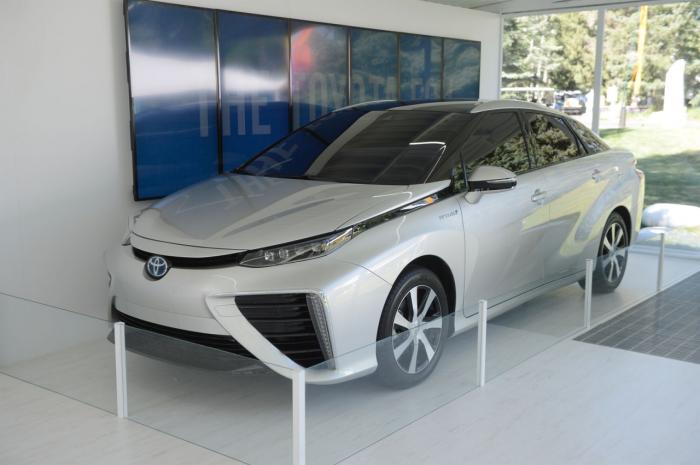

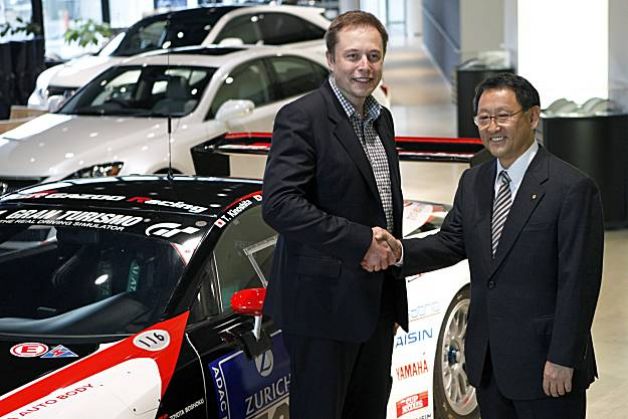







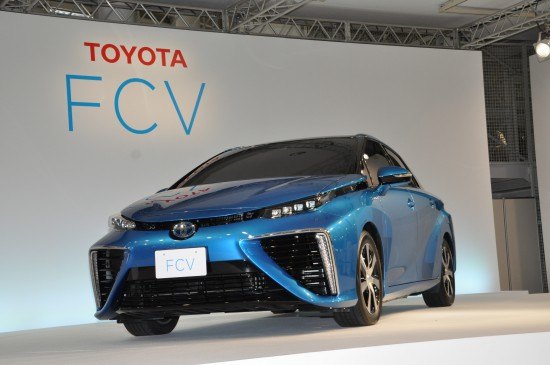
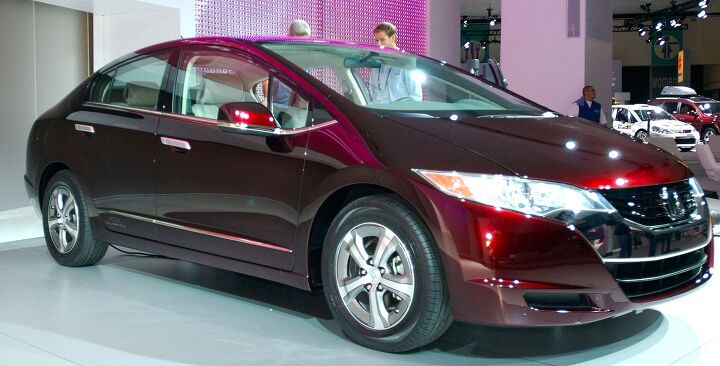


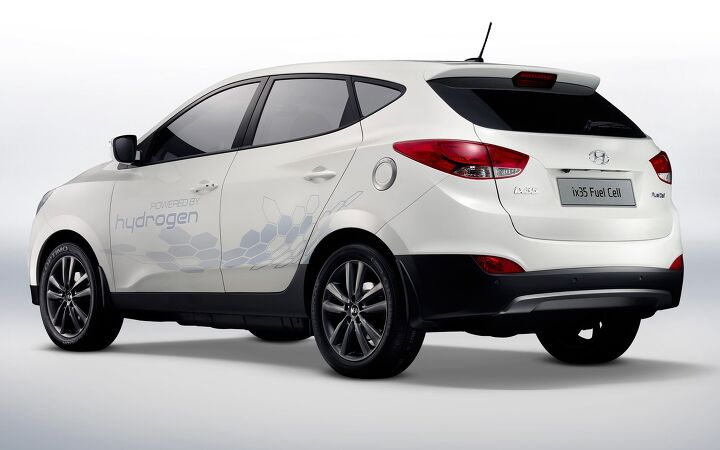
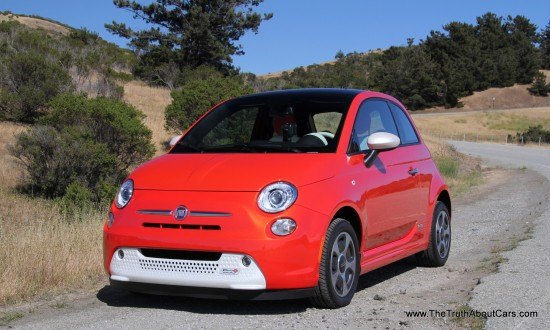
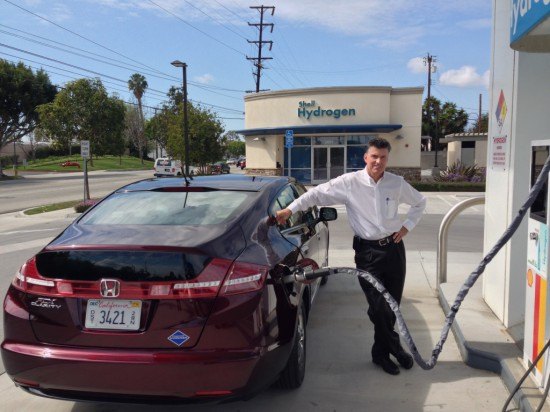

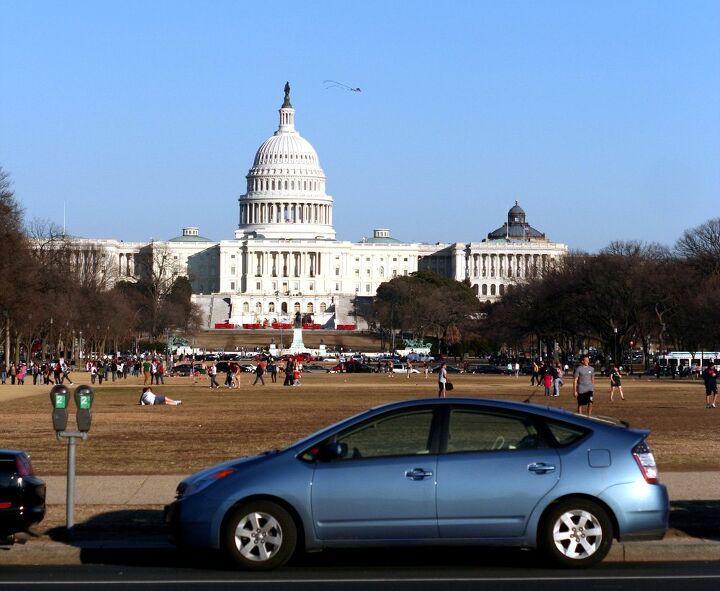
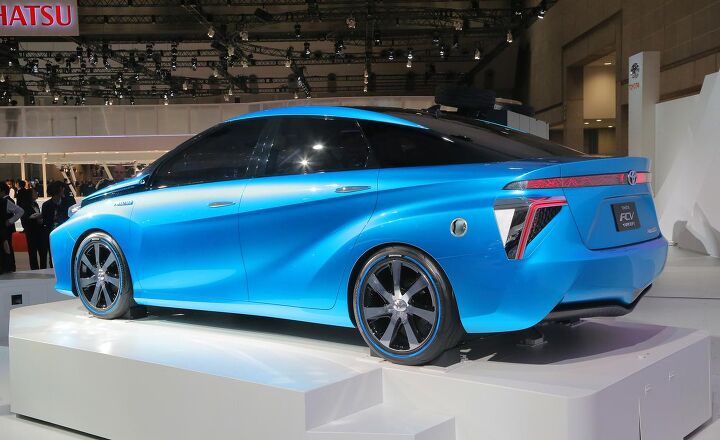


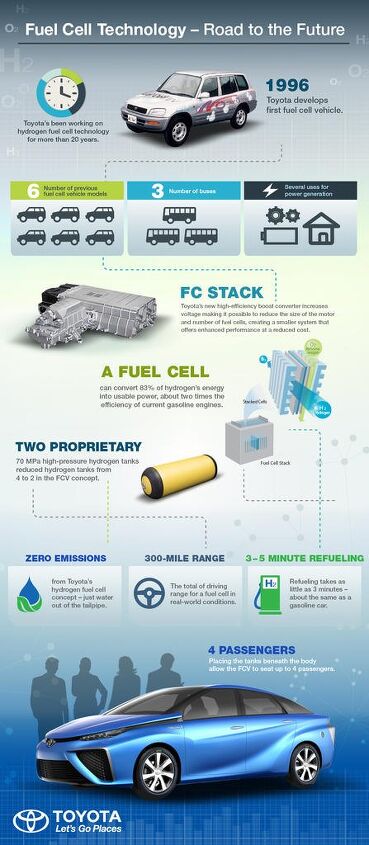
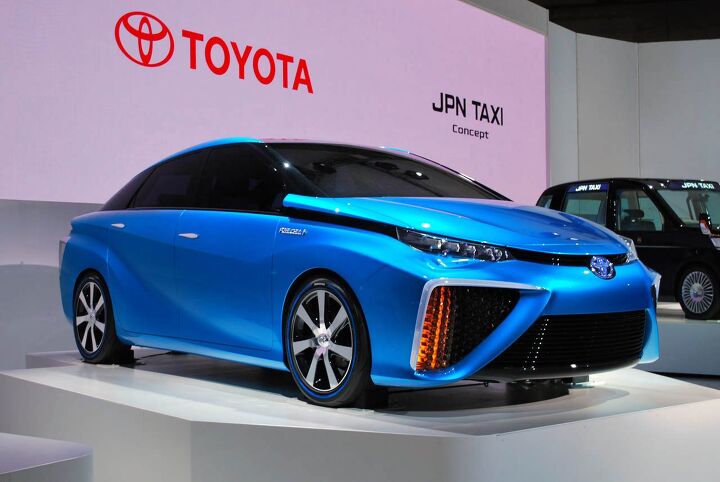
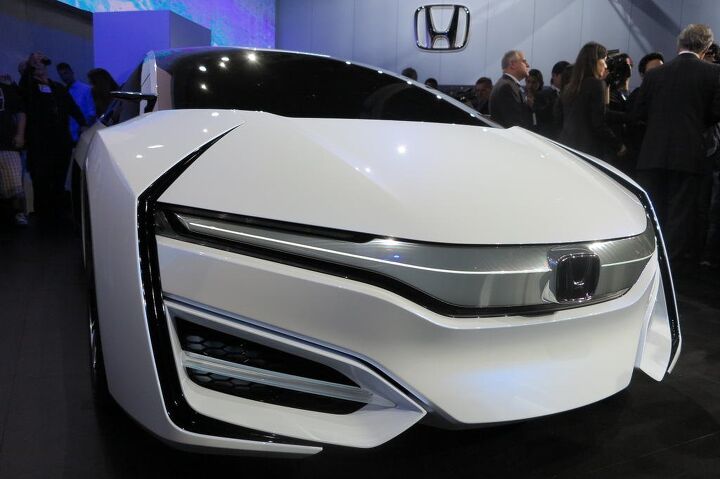
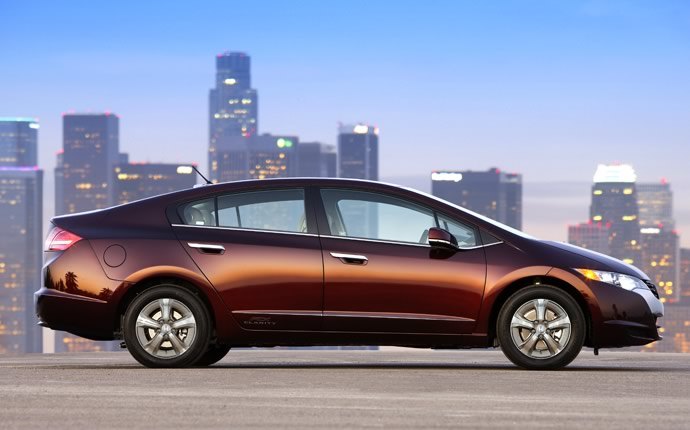
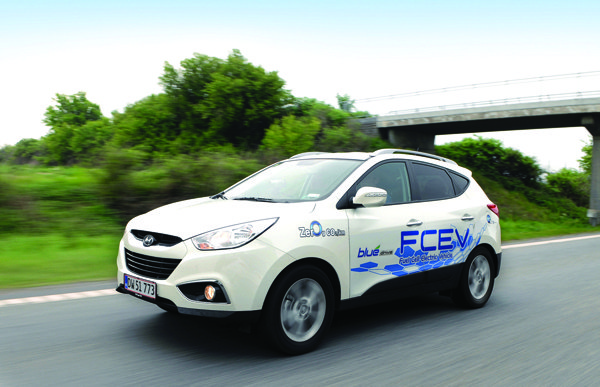

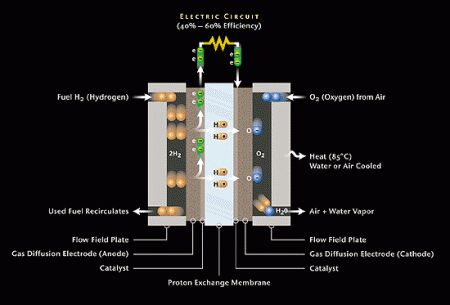
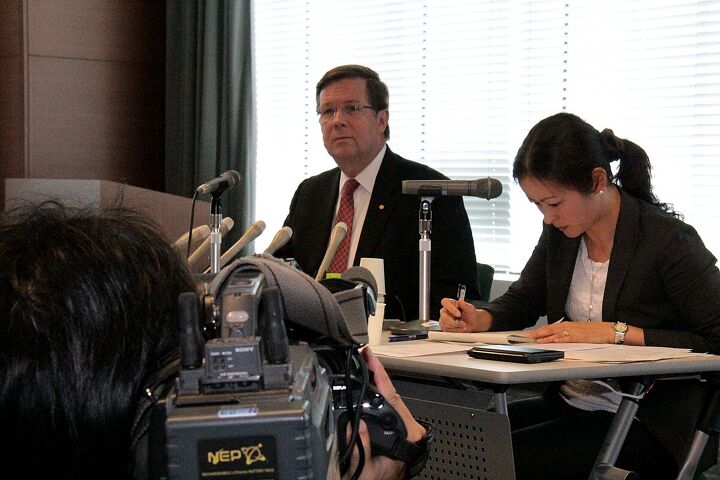

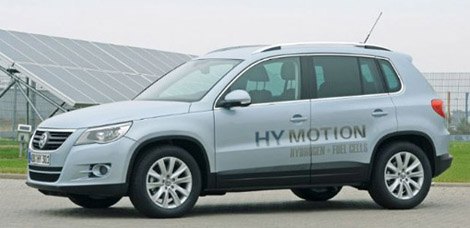
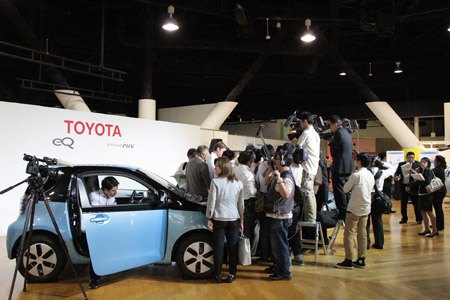
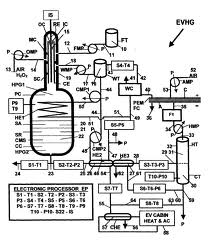
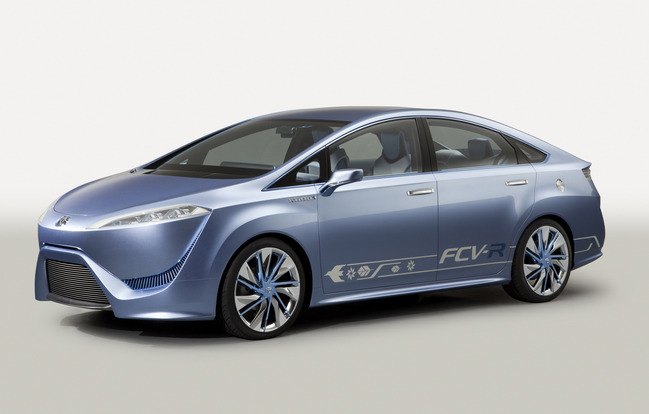
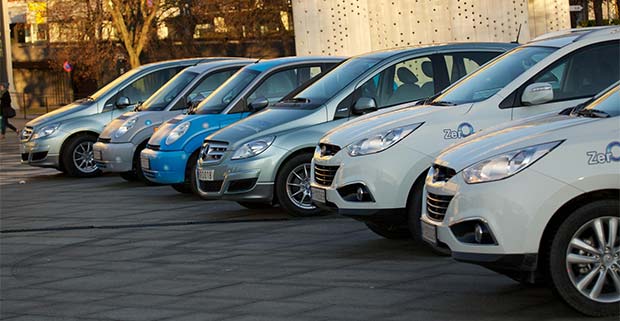

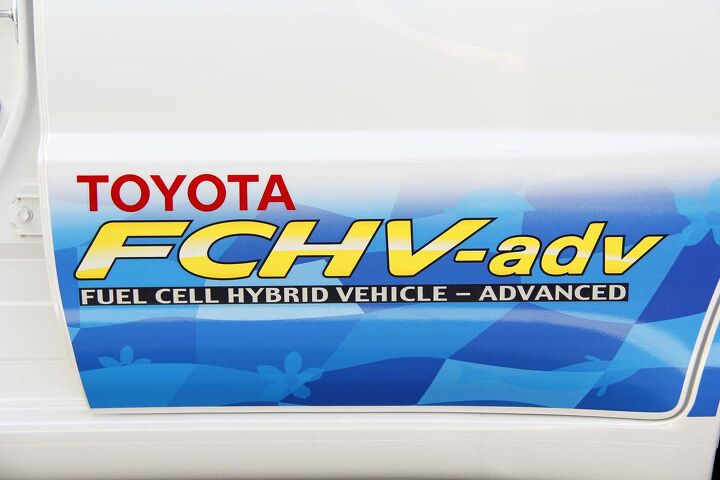
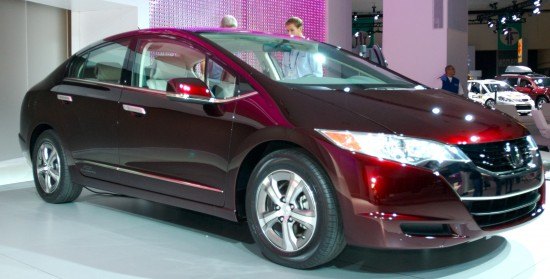
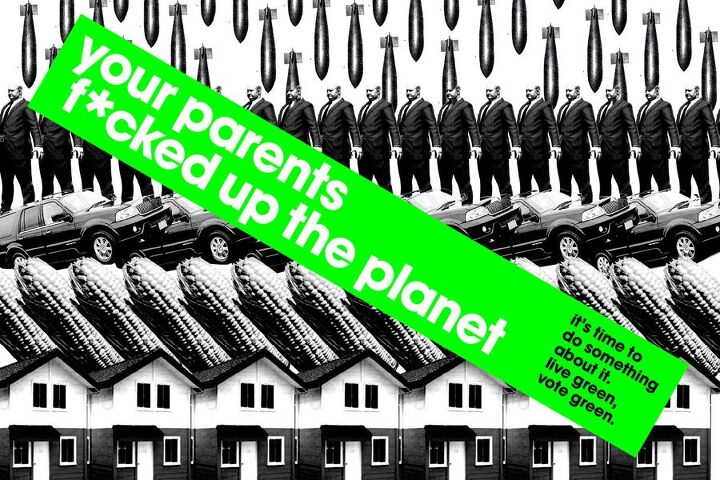
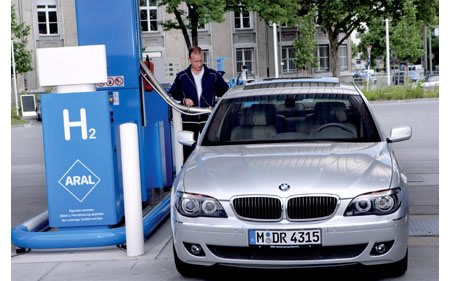
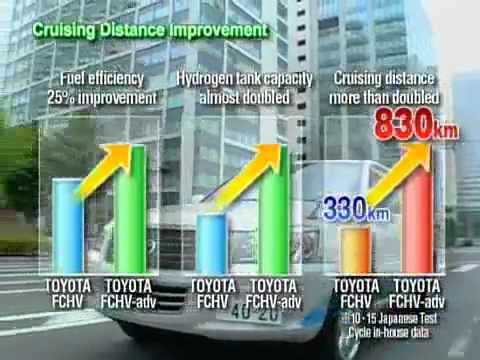
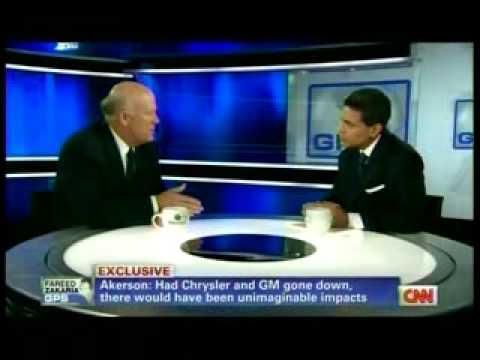

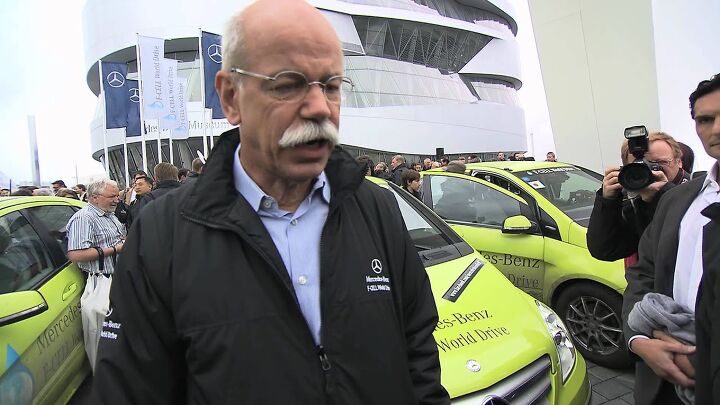
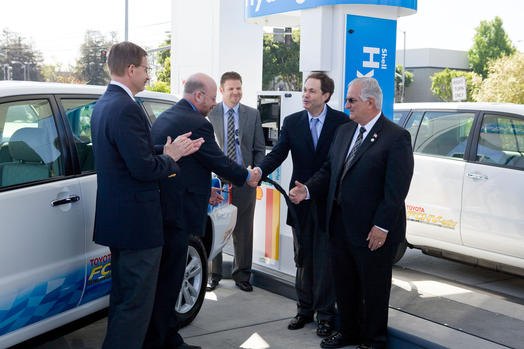
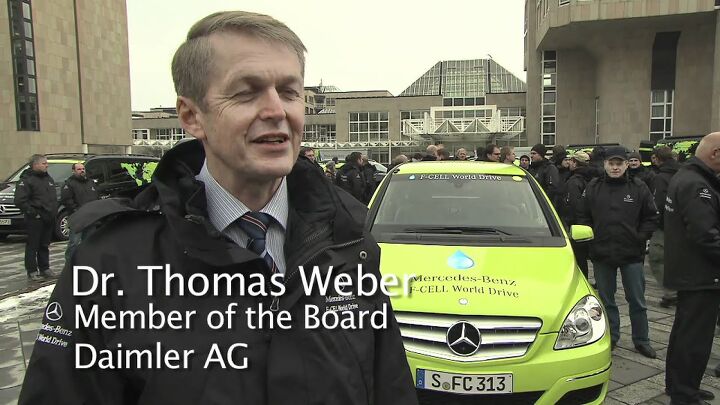
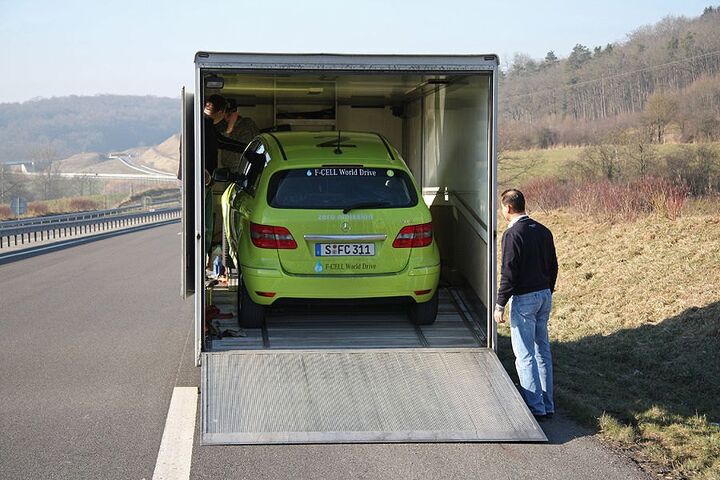
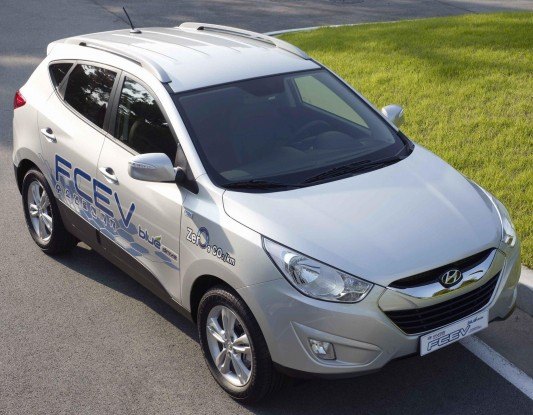
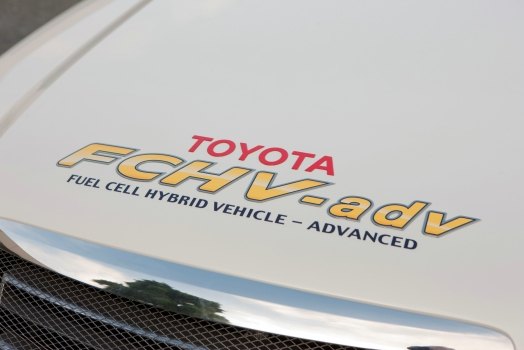

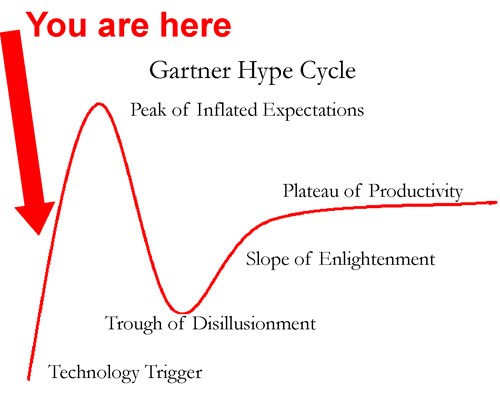

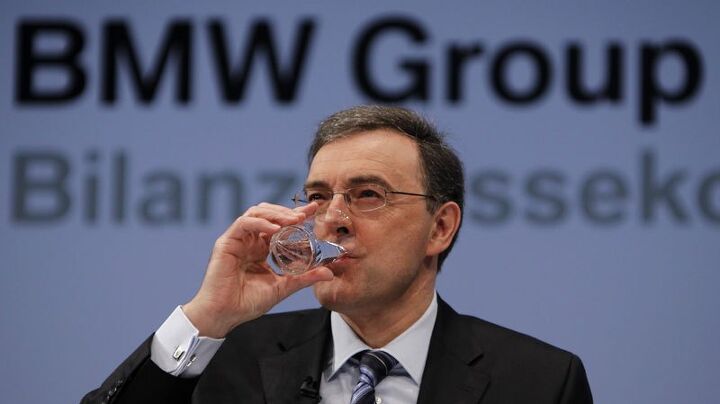
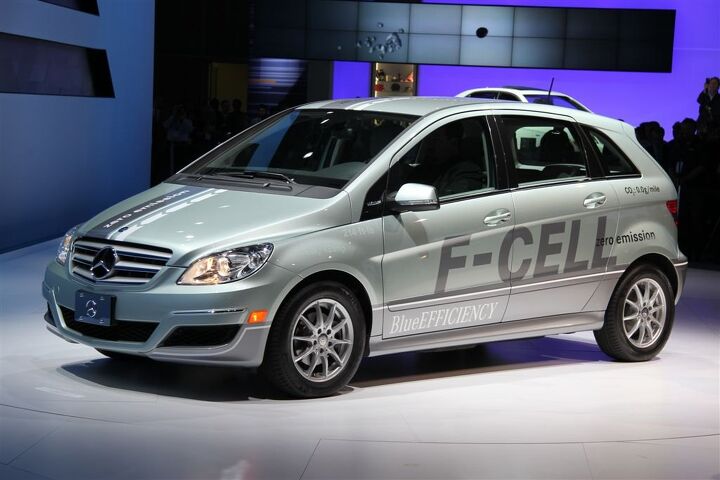

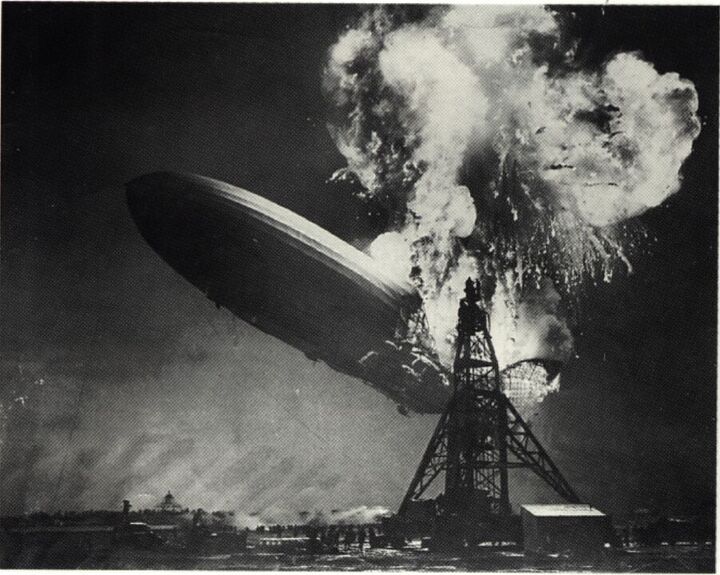
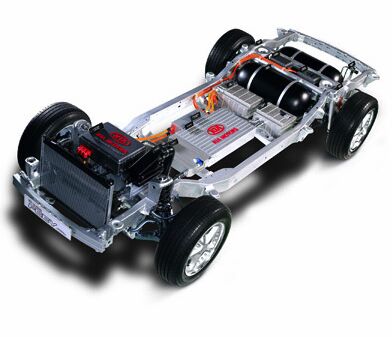












Recent Comments